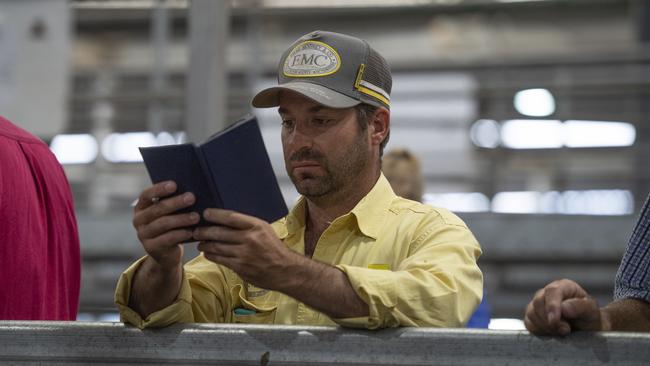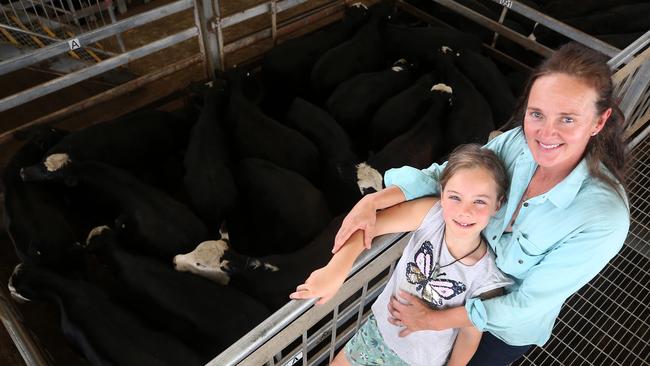EYCI: Young cattle prices fall from record
Young cattle prices have taken a big tumble, falling more than 40c/kg in one day. See the latest.

Young cattle prices have taken a tumble.
While there were no sales yesterday due to the public holiday, the Eastern Young Cattle Indicator fell more than 40c/kg on Tuesday.
The benchmark price dropped 43.25c/kg in one day to 1148.25c/kg carcass weight.
This comes after the EYCI was edging ever closer to 1200c/kg and closed at its highest ever level of 1191.52c/kg the previous day.
While the big rise was due to Queensland restockers, the fall was also because of them, with prices at Roma softening 160c/kg.

Meanwhile, earlier in the week Meat and Livestock Australia market information manager Stephen Bignell said restockers were paying a 220c/kg premium to feeders within the EYCI.
“We have seen in Queensland a lot of areas are still understocked and they have capacity to continue to rebuild, so demand will remain high,” he said.
“Every significant weather event in northern Queensland we have seen a price increase in the EYCI.”
AgForce Queensland cattle board president Will Wilson said there was still a long way to go with restocking the cattle herd.
“For people to buy females at the moment it is a mammoth effort (in price terms) and it will take a long time to get there. It is hard for people to hold stock at the moment instead of selling them, because prices are at such high levels,” Mr Wilson said.
Thomas Elder Markets analyst Matt Dalgleish agreed the latest price rise was in indicative of restocking behaviour.
“I still don’t think the circumstances have changed, I think it’ll mostly be a sideways consolidation.”
“Processor margins and Omicron will keep a cap on prices, while the good seasons will continue to underping the markets, so there’s enough forces keeping prices high but enough forces putting a cap on it.”
This comes after the first sales for the year were slightly softer.
The latest price rise was driven by Queensland markets, with buyers at Roma’s store cattle sale paying the highest prices at an average of 1303c/kg and 1178c/kg at Dalby.

Meat and Livestock Australia did an analysis several years ago comparing EYCI price trends in January to the annual change for that year.
Mr Dalgleish said the January EYCI was often a good indicator of how prices would fare for the year.
“For the last 25 years of EYCI reporting the direction up or down the EYCI took in January matched the annual movement that year 68 per cent of the time,” he said.
While it wasn’t a “robust” forecast, how the EYCI closes this month could give producers an idea of how it will go for the remainder of the year.





